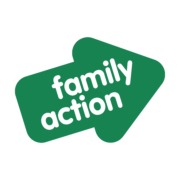When talking about nutrition we often speak of a balanced diet – with the idea being that the various foods we eat each contribute something to our body’s health and wellbeing. The same is also true of play – with different types of play encouraging the development of the different skills that will aid them upon starting school and beyond.
Here we break down some of the common types of play and suggest how best to encourage children’s development in each area.
Physical play
Physical play is all about movement and using our senses but is sometimes it can be misunderstood as always involving rough and tumble, outdoor or sporting activities. In reality physical play is about moving the body – both “big” and “little” movements – and doesn’t always have to be about running about.
Area of development: Sensory – hearing, seeing, tasting, touching, smelling
Suggested activities to promote development:
Babies and infants: Water play
Pre-school children: Water play and play with mud and sand
Area of development: Gross motor skills (i.e., using big muscles. Includes coordination)
Suggested activities to promote development:
Babies and infants: Tummy time
Start tummy time with babies by placing them tummy-down on your chest or lap for a few minutes at a time. Lying on their tummy, they can practice lifting their head and developing their neck and shoulder muscles. When you think your baby is ready, and can use their arms to lean on, you can move on to putting them on a blanket or play mat on the floor. Always stay with your baby during tummy time and do it on a low, flat surface.
Area of development: Fine motor skills (i.e., using small muscles. Includes coordination)
Suggested activities to promote development:
Babies and infants onwards: play with mud and sand, using cutlery (plastic for younger children), drawing and colouring in, building with blocks
Pre school children: junk modelling
Cognitive play
Cognitive play involves tasks that get your child thinking, understanding and remembering.
Area of development: Critical thinking – problem solving, cause and effect, remembering and learning)
Suggested activities to promote development:
Babies: hide their favourite toy and help them find it
All children: Treasure/scavenger hunt
Area of development: Speech and language – understanding language, reading, writing and communicating thoughts, ideas and feelings.
Suggested activities to promote development:
Babies: Talk to babies and name items as you play with them.
All Children: Reading together
Pre-school children: Play alphabet-related games – for example seeing how many words beginning with a letter of the alphabet you come up with in five minutes. If children don’t pronounce words right them you should still accept them – simply repeat them back correctly when you do so.
Area of development: Literacy and numeracy – covering everything from first words and ABCs to reading and storytelling and communicating with others.
Suggested activities to promote development:
All children: Reading together
Pre-school children: Board and dice games, and games blending letters and numbers – try sticking 26 sheets of paper on the wall or laying them out on the table or floor, one for each letter of the alphabet (you could cut them into the shape of the letters or just write the letters on). Then let the children fill them in with stickers, collage pictures or drawings, representing things that begin with each letter.
Area of development: Creativity
Suggested activities to promote development:
Pre-school children: Due to the nature of this area set games aren’t as appropriate. Instead, set a task to be completed and let your children try and work out how to achieve the goal.
Examples could include:
-
- Who can make something spin for the longest period of time?
- Who can take off their socks the quickest without using their hands?
Social & Emotional play
Social and emotional play helps children develop the communication-based and empathetic skills they use to interact with others.
Area of development: Relationship/team building – playing with others, turn-taking, getting along and making friends
Suggested activities to promote development:
All children: Direct your child through an “obstacle course” made up of random items with eyes closed or blindfolded.
Depending on your child’s competitiveness you can experiment with a time limit or losing points for hitting things but remember that the point is to develop trust, not to “win!”
Obviously the version of this activity played with babies and infants is much less formal… and probably a “game” you’re already playing quite a bit with inquisitive children learning to walk or crawl!
Area of development: Self-expression and confidence – feeling good about themselves and communicating their thoughts.
Suggested activities to promote development:
All children: Storytelling is an ideal way to communicate thoughts, so try and expand on this. Children are natural storytellers anyway, so often this simply involves asking them questions about the things they’re telling you.
Don’t be afraid to harness your child’s interests here – yes, you might have heard enough about trains or a TV character to last a lifetime but letting them communicate what’s important to them is valuable for developing self esteem.
Area of development: Emotional intelligence, empathy and self control – helping kids name feelings, develop empathy and practice self control.
Suggested activities to promote development:
All children: When reading a book or watching a TV programme together try to discuss and label the emotions that a character is feeling.
It can also be worthwhile to play “feelings charades” where you each try and act out an emotion for the other to guess.
This article is part of our Play Programme, which shares early years expertise, practical tips and simple activities for families looking for quick and easy ideas to build play into the everyday and help their children thrive.








